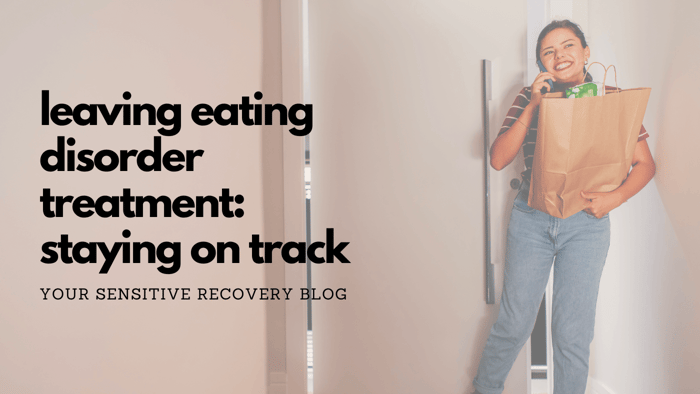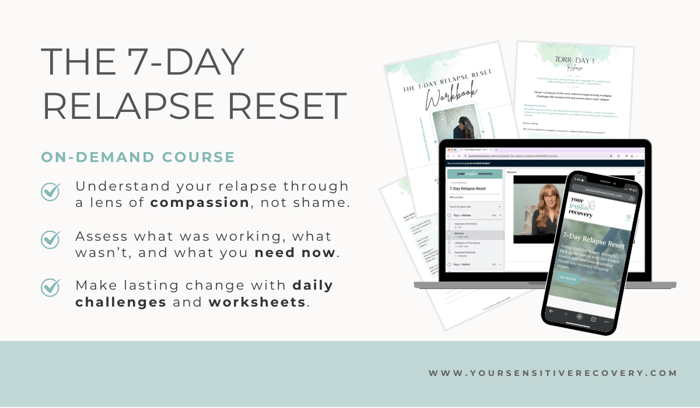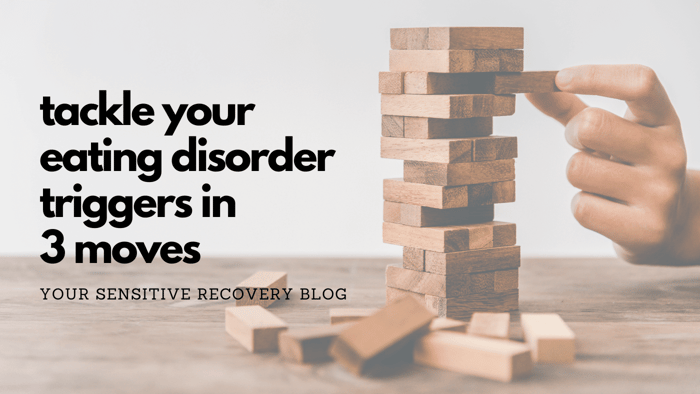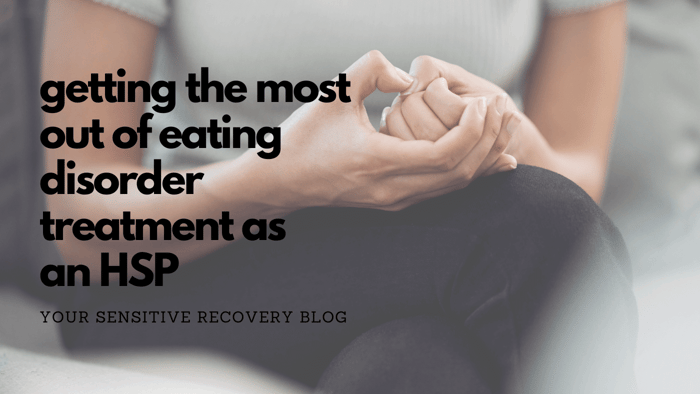Getting intensive eating disorder treatment, whether through a residential stay or partial hospitalization program) can have incredible benefits and be transformative for your recovery. The increased structure and containment help you establish new habits and coping skills, gain stability, and ideally, significantly decrease your eating disorder behaviors.
But what happens when you leave? Many people worry about maintaining their progress once they transition to a lower level of care - and for good reason. Without the constant support of the program's treatment team and the highly structured environment, old habits can creep back in before you realize it.
So how do you sustain your progress and continue moving forward after discharge? Below, I’ve outlined my top tips to help you stay on track when stepping down.
1. Seeing an outpatient treatment team is non-negotiable.
One of the biggest mistakes people make when transitioning to a lower level of care in eating disorder treatment is deciding that they don’t need to return to their outpatient team. Maybe you’re feeling great - better than you have in years even!
But recovery doesn’t stop when you walk out of a treatment facility. In fact, this is when some of the deeper and harder work begins.Leaving the familiarity of a treatment program can be destabilizing in unexpected ways.
Without continued support, you risk slipping back into harmful behaviors, sometimes without even realizing it at first. Having a solid outpatient team in place, including a therapist, dietitian, and possibly a physician or psychiatrist as needed, ensures you have the guidance and accountability needed to navigate this transition successfully.
If you had a team before entering treatment, advocate for ongoing communication throughout your stay. A good treatment program should already facilitate this, but if not, speak up. When your outpatient providers are informed of your progress, they’ll be better equipped to support you when you return.
2. Stay vigilant about your food.
You’ve put in the work to challenge your eating disorder thoughts and beliefs, and you now have proof that you can nourish yourself appropriately and sustainably. But the transition back to everyday life can feel overwhelming, and that’s when small slips like delaying a meal or skipping a snack can start to snowball.
Food is one of your medicines in recovery.
Sticking to your meal plan, even when life feels chaotic, is crucial to maintaining your progress. Try to keep your eating schedule as consistent as possible. Seemingly minor disruptions, like sleeping in and pushing breakfast back, can lead to skipped meals, increased anxiety, and an easier path for the eating disorder to regain control.
Give yourself the structure you had in treatment by setting reminders or alarms if needed. Your recovery is worth prioritizing.
3. Keep in touch with your peers.
The connections you make in treatment can be incredibly meaningful. These people get it in a way that even the most well-intentioned friends or family members may not. They’ve seen you at your most vulnerable, and vice-versa.
These relationships are not always meant to last a lifetime. But they can play a profound role during this "season" of recovery.
Eating disorders are healed in relationships with other people.
It’s easy to tell yourself you’ll stay in touch, but life gets busy, and doubt can creep in. What if they don’t want to hear from me? What if they’ve already moved on? These are just excuses your eating disorder uses to keep you isolated. The truth is, maintaining the connections you made in eating disorder treatment can be a powerful protective factor in your recovery.
Call, text, send voice memo...whatever it looks like, reaching out can be just as beneficial for them as it is for you.
4. Stay connected to your "Why"
Recovery isn’t linear, and it's normal for motivation to fluctuate, especially in times of change. Some days, you’ll feel strong and determined. Other days, the pull of old behaviors might feel overwhelming. That’s why keeping your personal reasons for recovery front and center is so important.
Hopefully, somewhere during your eating disorder treatment, you explored your “why” - the reason or reasons you want to heal, both big and small. Maybe you want to be fully present in your relationships, regain your energy, or finally experience a life free from obsessive thoughts about food or weight.
When motivation dips, don’t panic.
Resist the urge to sabotage your progress for short-term relief.Pause. Journal about your feelings. Revisit your reasons for recovery. Remind yourself that the discomfort you’re feeling now is temporary, but giving in to old behaviors will only prolong your suffering.
Stay kind to yourself. Chances are, your motivation will return soon.
Final Thoughts
Remember, relapse is common but it is NOT inevitable. With the right support, structure, and self-awareness, you can maintain the progress you’ve worked so hard to achieve in your eating disorder treatment program. Be honest with yourself and others, and don’t be afraid to ask for help when you need it.
A full and lasting recovery is possible. And you are more capable than you know.
You’ve got this! 🙌
✨ Josie Munroe, LMFT is a licensed therapist and owner of JosieMunroe.com and Your Sensitive Recovery As a recovered clinician and Highly Sensitive Person, she loves supporting others on their journeys to form new, empowered relationships with food, their bodies, and their sensitivity. Join the newsletter for a weekly boost of hope and inspiration. You deserve a recovery that works for you! ✨






